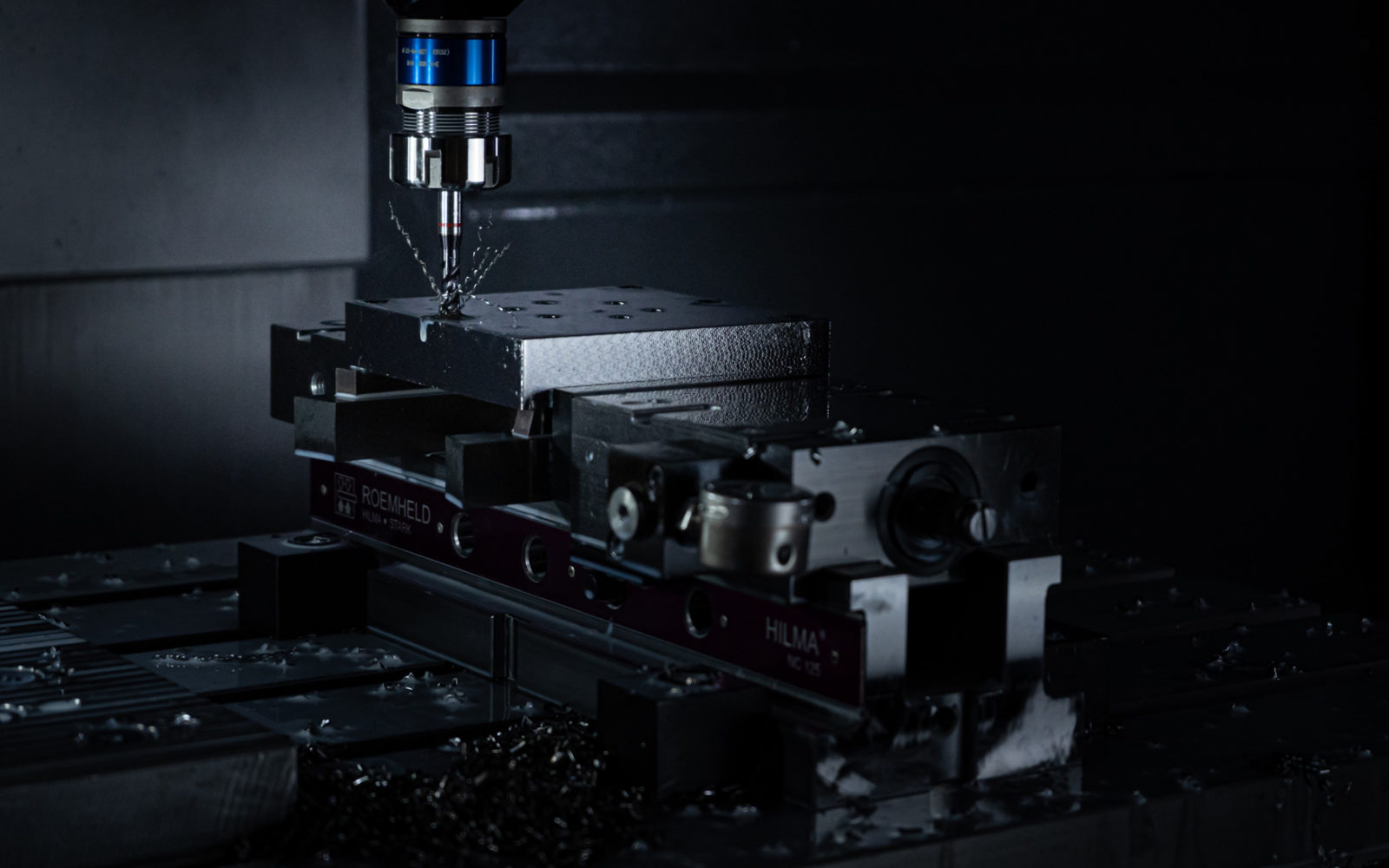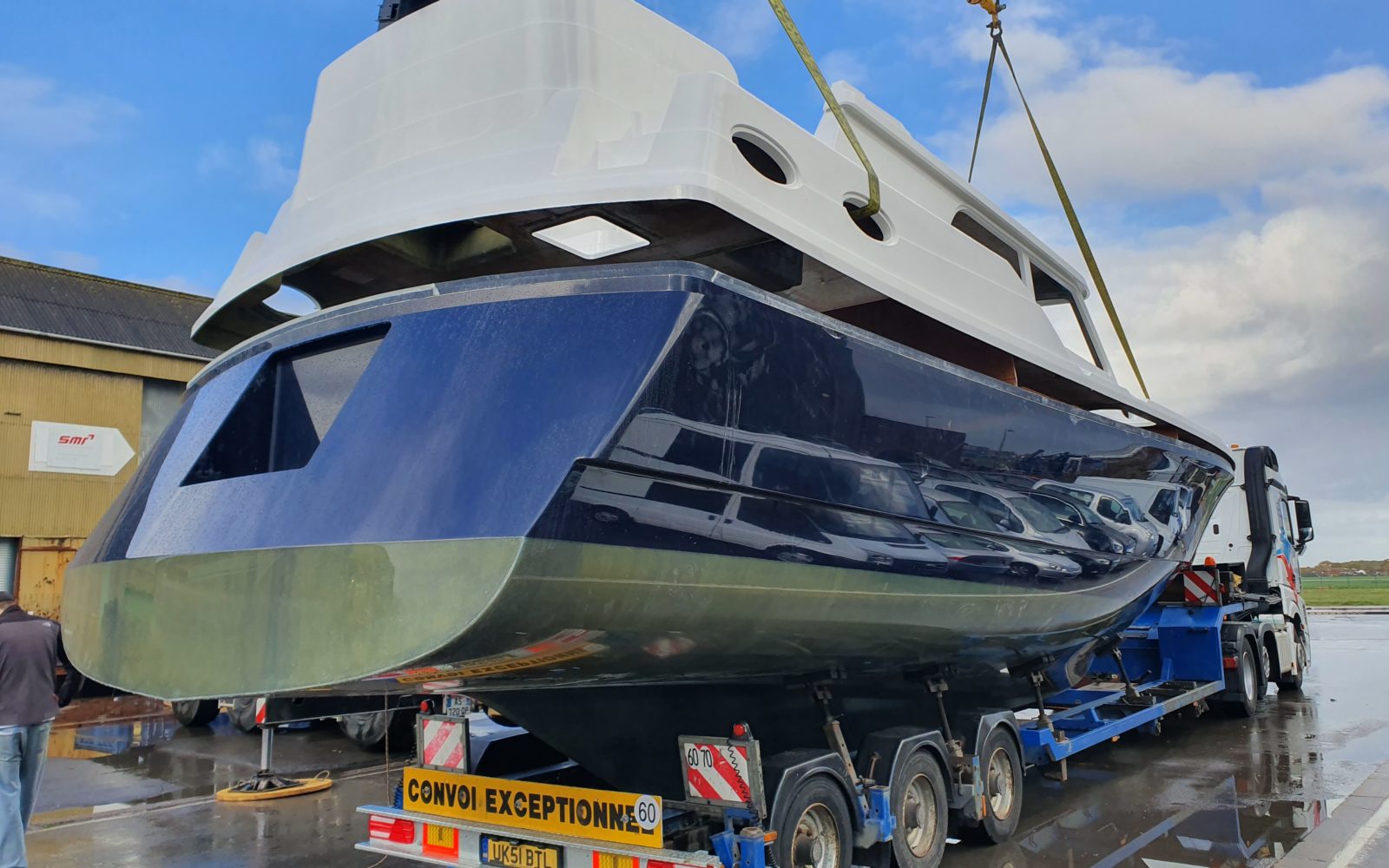
Composite Mouldings
At MCS we produce composite mouldings using a variety of techniques and materials depending on the customer’s exact requirements.
Glass Reinforced Plastic (GRP) is the most commonly used method of production across various industries. Its structural and durable characteristics combined with its cost-effectiveness make it a popular choice for low, medium and high scale production runs.
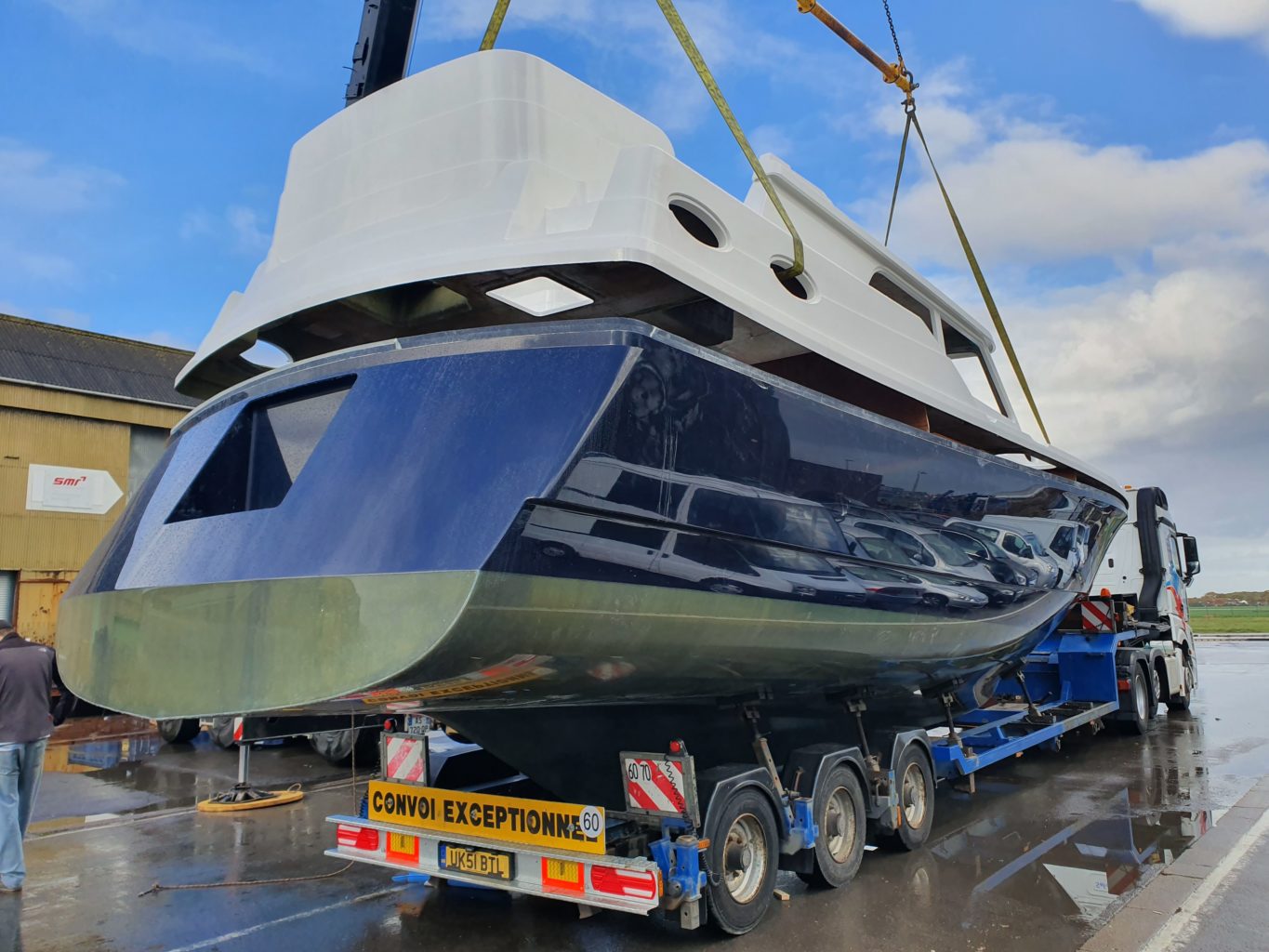
Hand Lay-up
The hand lay-up process is a simple build up of layers on the face of the mould tool. This process works well for relatively simple shapes and tool profile where only one side of the surface needs to be a smooth finish.
For a double sided finish where a split mould is required, two or more moulds are laid up separately and joined together allowing for a 360° ‘A’ surface finish.
This is the preferred method for many of our customers and MCS has delivered a variety of components over the years from large structures such as hulls and decks for yachts, to smaller, quirkier parts such as a life size gummy bear.
Resin Infusion
The resin infusion process is a technique that uses vacuum pressure to drive resin into a laminate. Materials are laid dry into the mould and the vacuum is applied before resin is introduced. Once a complete vacuum is achieved, resin is literally sucked into the laminate via carefully placed tubing.
This method secures a greater consistency and repeatability of the part whilst offering a cleaner process with less material waste.
We have applied this technique for a wide range of composite parts and tooling where it suits the process.

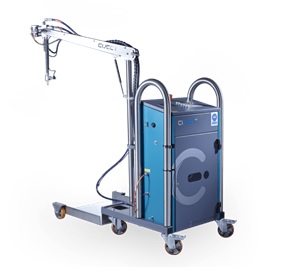
RTM
Resin Transfer Moulding is the process in which the resin is injected into a closed mould (which has already been laid up) and in a similar process to infusion, the resin is sucked through the layers.
This method allows for a consistent manufacture of high volume parts due to faster cure times. The closed mould system also allows a good surface quality on all sides of the part.
MCS uses a state of the art CI-Jet One injection machine and are ready for long and high volume production runs.
Pre-Preg
A pre-preg is a pre-impregnated fabric, typically carbon, glass or aramid.
The fabric is impregnated with resin via machine thus achieving a carefully controlled resin to fibre ratio for predictable and controlled performance.
The pre-impregnated fabrics are then cut and placed into the mould, vacuumed for consolidation, and cured to a specified temperature.
Our dedicated temperature controlled room for manufacture of pre-preg parts ensures strict material handling and production guidelines are adhered to.
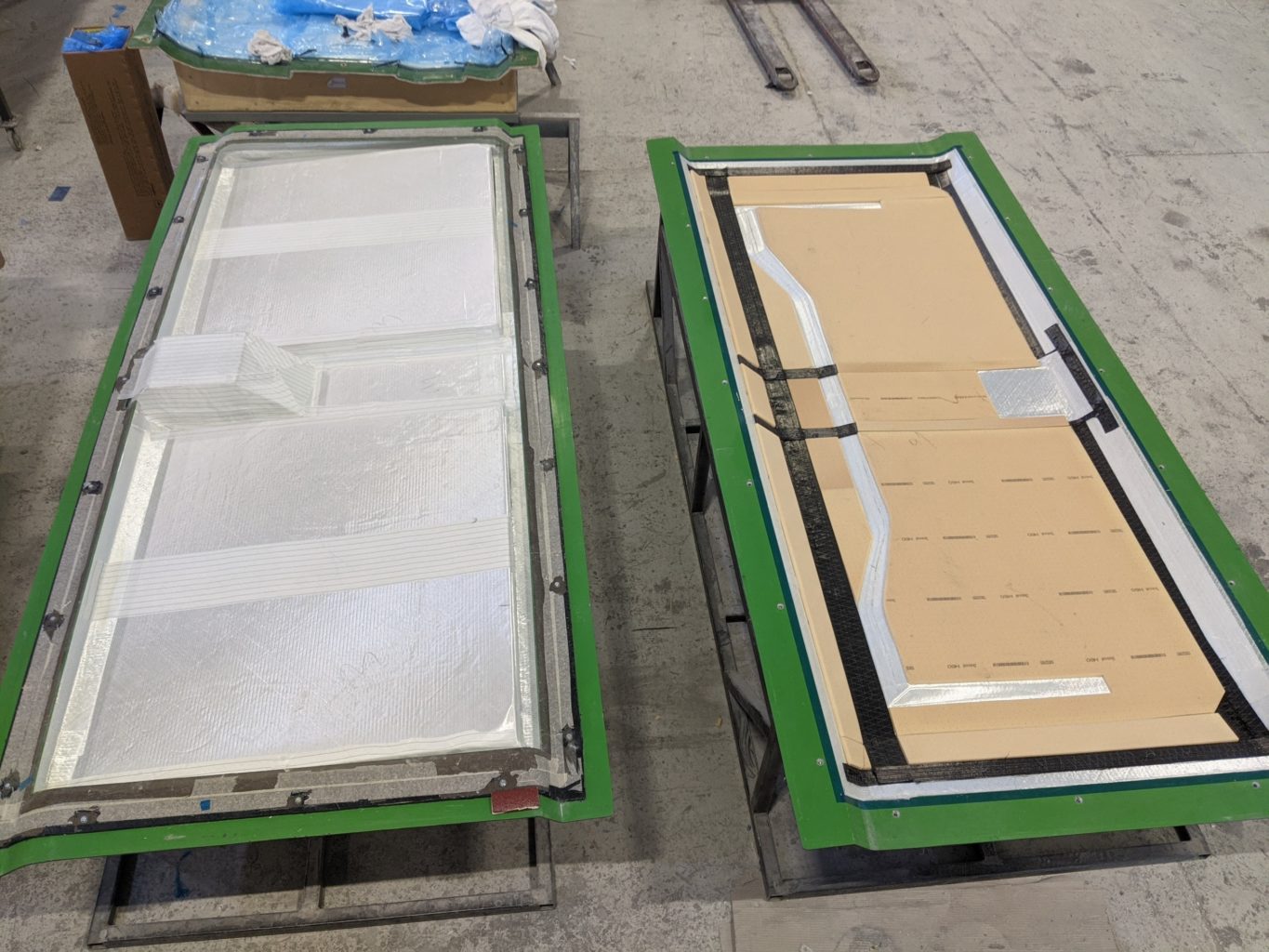
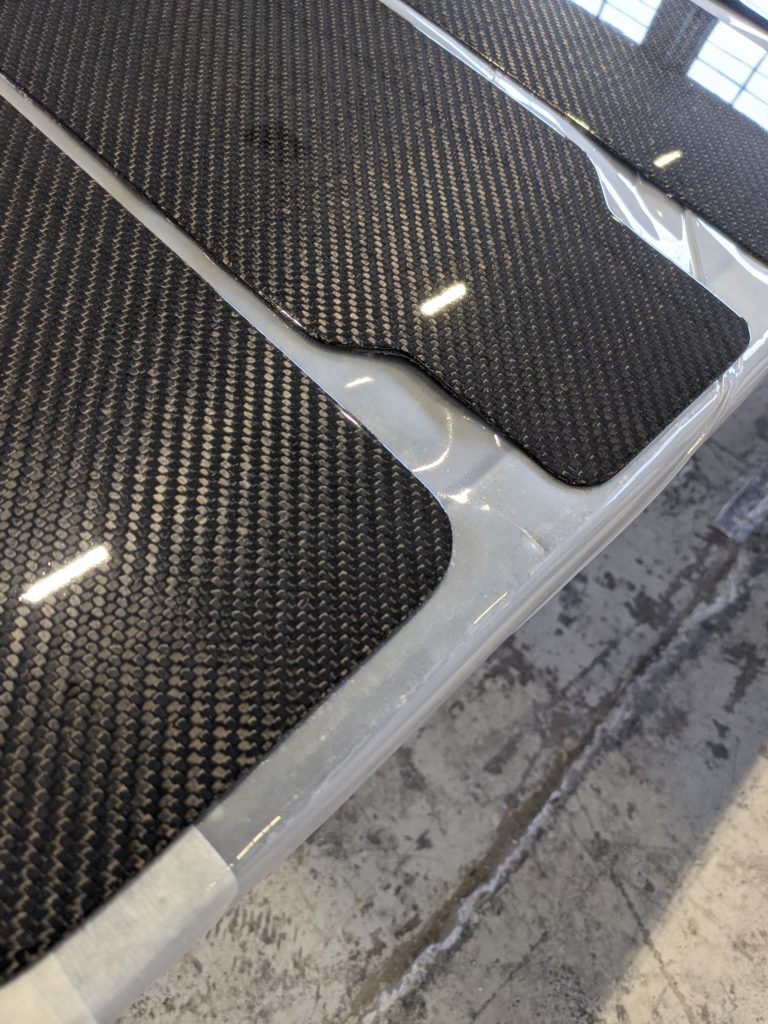
Carbon Fibre
In addition to fibreglass mouldings we specialise in the use of the stiffer and more aesthetically pleasing carbon fibre.
Whether it is hand lay, infused or pre-preg, our dedicated carbon fibre division ensures your product is built to the highest quality.
As well as painted carbon we can offer visual carbon products which are clear coat lacquered and polished revealing the visually striking weave of the fabric.
